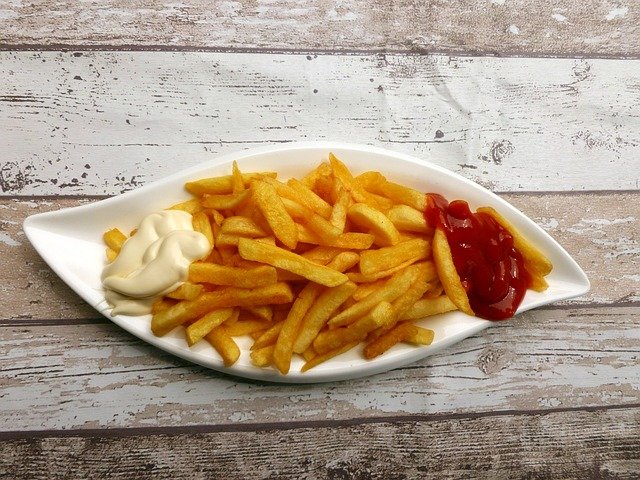Top & Best Industrial sewing machine Review 2022 – How to Select Ultimate Buyer’s Guide
Industrial sewing machine: How to choose the best model in 2022
If you intend to increase productivity in your sewing studio or plan to build a garment, it is worth investing in an industrial sewing machine. The equipment can be used to sew simple and elaborate pieces.
The industrial sewing machine is more robust, resistant and faster than a domestic sewing machine. It is compatible with different types of fabrics, threads and needles. Want to know more? Continue reading this text.
First, the most important
- You can find the industrial sewing machine in mechanical, electrical and electronic versions. The electric and electronic models have a digital touchscreen panel – some models have voice commands.
- If you intend to use the industrial sewing machine every day, for many hours in a row, invest in the mechanical model, as this machine is more resistant and does not consume energy.
- Who is starting in the sewing business, should choose a straight machine, as this model is easy to handle. Whoever wants to guarantee an impeccable finish, should choose an industrial sewing machine in tubular format.
You may also like :
- Portable sewing machine: Which is better in 2022
- Sewing machine: How to choose the best in 2022
The best industrial sewing machines: Our choices
You find a wide variety of industrial sewing machine models. We have selected the best equipment with different characteristics so that you can find the best one for your workshop or confection.
- The most modern industrial sewing machine
- The complete industrial sewing machine
- The most economical sewing machine
Buying Guide
To open a textile factory or tailoring workshop, the seamstress needs to take some courses, be attuned to fashion trends, constantly recycle sewing techniques and buy an industrial sewing machine. Find out how to choose a good industrial sewing machine in this Buying Guide.
What are the characteristics of an industrial sewing machine?
The industrial sewing machine looks like a traditional sewing machine, but it is bigger, more resistant and comes with a support table. It can be mechanical, electrical or electronic – the latter two have a Direct Drive engine.
The equipment comes with one or more needles where the sewing threads are placed – the industrial sewing machine is compatible with almost all types of fabrics and threads such as cotton, nylon, viscose, silk, metallic, wool, spool and mixed.
The industrial sewing machine is intended for professionals who work with clothing making, whether in the atelier, factory or at home.
What jobs can I do with the industrial sewing machine?
Anyone looking to buy an industrial sewing machine should consider what services can be performed with the equipment.
Versatile, the industrial sewing machine serves to make simpler or more detailed pieces in light or heavy fabrics – such as cotton, leather, jeans, wool, synthetic fabrics, among others.
It can also be used to sew larger pieces such as curtains, sheets, towels and carpets, as well as accessories such as backpacks, bags, bags and shoes – the machine sews on fabrics that contain rubber parts.
The machine also serves to carry out repairs and finishes such as making hems, applying bias, making decorative seams, among others.
The great advantage of the industrial sewing machine is that the equipment is used to produce and repair parts in large quantities.
he industrial sewing machine has some differentials such as length adjustment, lower and upper braiding, silicone reservoir with automatic lubrication system, eye and finger protector, bias applicator, among others.
The industrial sewing machine is the best alternative for those who need practicality and speed in large-scale daily production. Find out all the advantages and disadvantages of the equipment in the table below:
How to profit from an industrial sewing machine?
You have several options for commercial ventures with the aid of a sewing machine. From working with custom sewing, making custom pieces such as school or professional uniforms.
You can also open a haute couture workshop, a franchise for minor clothing repairs, or a clothing or accessory manufacturer. Options abound, use your creativity.
How to use an industrial sewing machine safely?
As we mentioned earlier, the industrial sewing machine is great for sewing parts quickly, but it can be very dangerous if you don’t take care.
The main thing is to never neglect your hands when sewing. Also, never change or replace the sewing thread or needle while the machine is on. The ideal is to turn off the equipment, make adjustments and reconnect. With little care, you will not suffer accidents.
What are the differences between the industrial and domestic sewing machine?
The domestic sewing machine is suitable for personal use. The device has a built-in motor, compact size, moderate speed, free arm, voltage regulator, can use single or double needle and performs a wide variety of stitches.
With the domestic sewing machine you can sew an entire piece.
With a domestic sewing machine it is possible to sew an entire piece, from the mold to the finish, just by changing the stitches. As it does not come with a table, the domestic sewing machine can be stored in some corner of your wardrobe after use.
This equipment is ideal for those who are not used to sewing or do not want to work with textile production – whether making or repairing clothes. It should not be used for many hours, not every day, as it can overload the equipment.
In summary, the industrial sewing machine is more robust, resistant, quick and simple to handle, ideal for large-scale production. It can be used for many hours and days without needing to be revised.
This type of machine has specific functions such as straight stitching, overlock, cloakroom, embroiderer, among other models.
The industrial sewing machine has its own cabinet, which is why it takes up a lot of space in the workshop or confection.
If you decide to buy an industrial sewing machine, we recommend that you take a sewing course, as this equipment has more features and requires more skills from the seamstress.
Compare the two options in the table below:
Purchasing criteria: How to analyze an industrial sewing machine
The variety of sewing machines on the market is huge, making choice difficult. The challenge is to find a good industrial sewing machine according to the equipment’s technical specifications. Know some criteria that must be taken into account at the time of purchase:
- velocity
- Operating style
- Machine type
- Machine format
We will explain each of the topics throughout this section. Be sure to rate and share this article with other tailors.
velocity
A detail that you should note when purchasing an industrial sewing machine is the speed of stitches per minute (measured in PPM) which varies from 5,000 to 9,000 PPM.
Tip: The industrial sewing machine reaches up to 9,000 PPM, so look for equipment with finger and eye protectors to avoid possible accidents.
Operating style
An industrial sewing machine can be mechanical, electrical or electronic / digital. Know the characteristics of each model throughout this section:
- Mechanical industrial sewing machine is considered a more basic sewing machine, as it is necessary to manually coordinate the speed of the machine according to the pressure exerted by the feet on the pedal. This machine is more powerful, sewing faster, withstands heavy work and sewing any fabric. Nowadays, it is more difficult to find this type of sewing machine.
- Electric industrial sewing machine has a motor that moves the needle and the bobbin. Some models have a pedal and the higher the pressure applied, the faster the machine can sew. It is the preferred model of most tailors, as it offers several stitch options.
- Electronic / digital industrial sewing machine is used by more experienced tailors. It features a digital LCD touchscreen panel where you can select the stitch and design you want to sew – there is a wide variety of stitches and the machine has memory to store them – and the desired speed.
Again, to choose the ideal model it is essential to consider the purpose of using the industrial sewing machine.
To sew on lighter fabrics, you can use an electric or electronic machine. For heavy fabrics or assembling parts with many layers, use a mechanical sewing machine.
Machine type
You find different types of industrial sewing machines:
- Straight industrial sewing machine as the name implies, only “straight” sewing, without retraction. It is ideal for sewing pieces on thicker fabrics, on a large scale and very quickly.
- Industrial overlock sewing machine has three threads, ideal for sewing on knits and finishing pieces with flat fabric.
- Industrial interlock sewing machine has five threads. It does everything the overlock machine is capable of, but the seam is straight. That is, this machine is a combination of the two previous models.
- Industrial sewing machine is used to make a more elaborate finish on the pieces, such as nailing bias or making a bar. This machine is a little more delicate and requires careful handling.
Machine format
The industrial sewing machine can be in straight or round shape. The straight sewing machine is very simple to handle, ideal for those who are starting to sew professionally.The rounded or tubular sewing machine is ideal for those who already have experience with sewing and want to improve the quality of the finish. It is more difficult to find models with this format.







